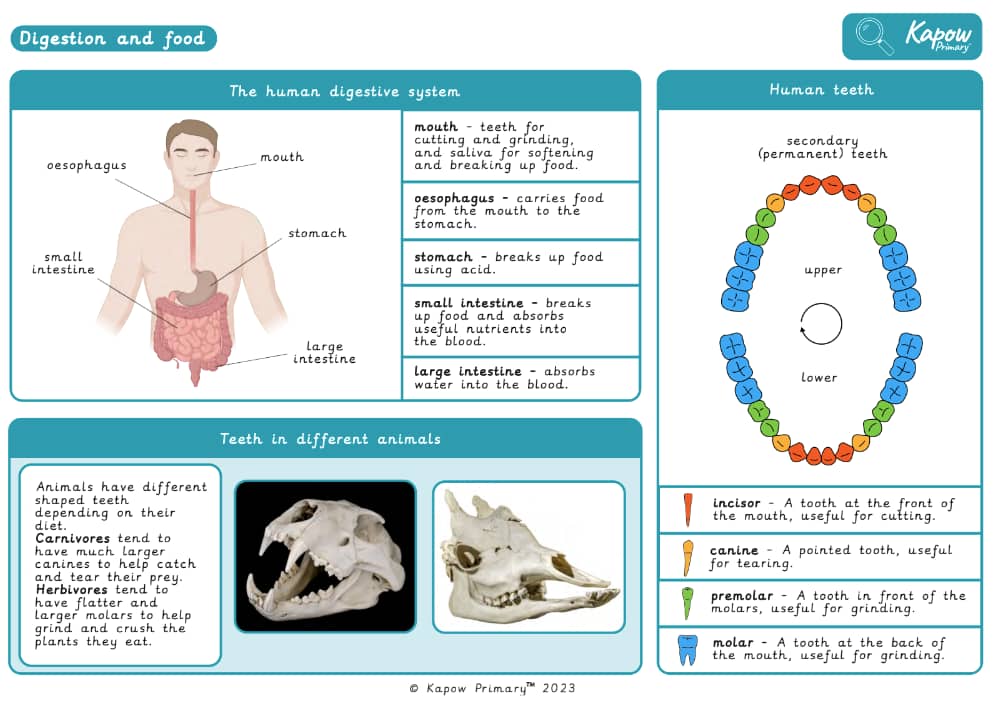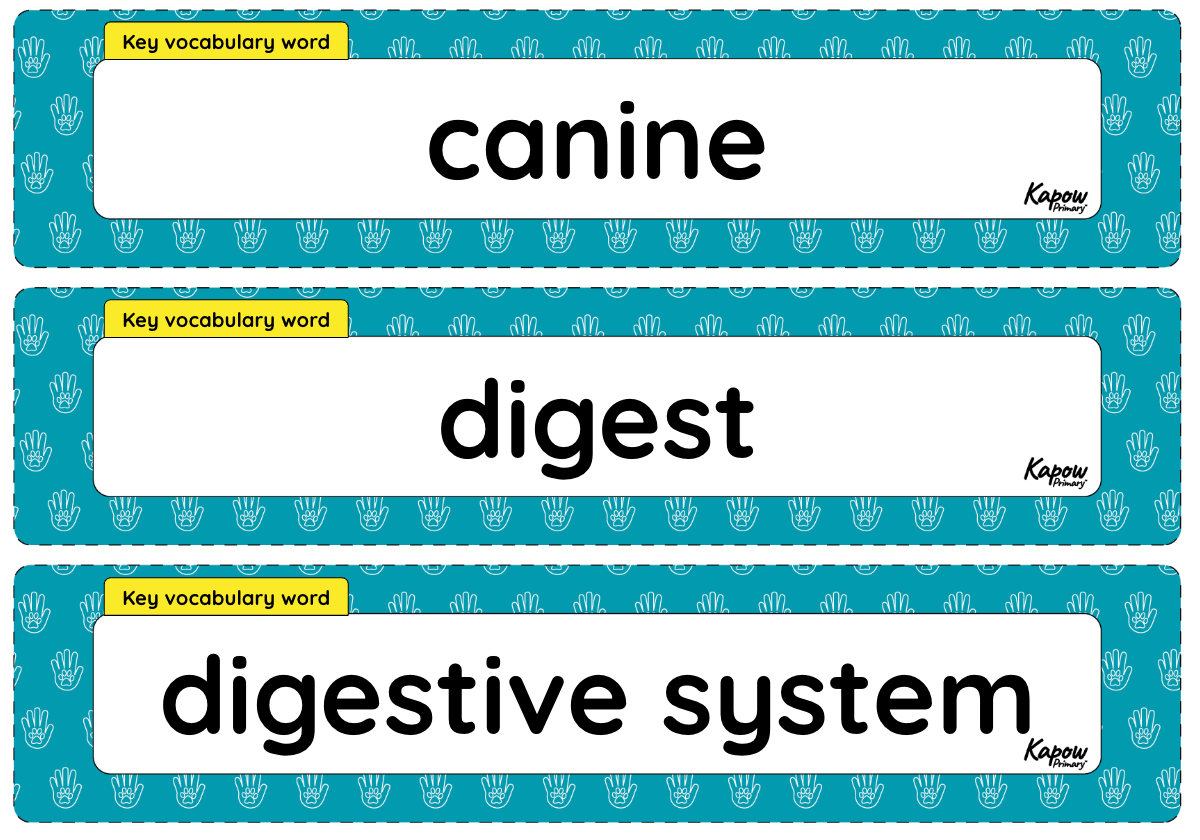Animals including humans: Digestion and food
Exploring the role of the digestive system and comparing teeth and diets of different animals as part of a food chain.
- Subjects >
- Science >
- Lower key stage 2 >
- Year 4 >
-
Animals including humans: Digestion and food
Unit outcomes
Pupils who are secure will be able to:
- Label key organs found in the digestive system and describe each of their functions.
- Describe the functions of the four different types of adult human teeth using key vocabulary.
- Know that good dental care involves brushing their teeth twice a day with toothpaste and a soft toothbrush.
- Produce a food chain that begins with a plant and has arrows that move up the food chain.
- Define a producer, predator and prey and identify examples in food chains.
- Describe digestion, teeth and diets when talking about the observed poo clues.
- Write a letter that uses a range of scientific vocabulary from the unit.
When working scientifically, pupils who are secure will be able to:
- Evaluate a strength or weakness of the digestive system model.
- Describe an example of evidence that can be used to study teeth.
- Evaluate a method by considering its limitations.
- Recall that scientific research needs repeated results before being used in society.
- Identify trends in predators and prey.
- Draw a results table that has space for observations about different poo samples.
Please note that Kapow Primary Science lessons are designed to be 1 hour and 30 minutes long to reflect the requirements of a core subject.
Suggested prior learning
Animals: Movement and nutrition
Get startedLessons
Lesson 1: The human digestive system
Knowledge
- To describe the function of the human digestive system.
Working scientifically
- To evaluate a model.
Lesson 2: Human teeth
Knowledge
- To recognise the different types of human teeth and their roles in eating.
Science in action
- To describe real observation methods and evidence collected.
Lesson 3: Investigating dental hygiene
Knowledge
- To explain how to care for our teeth.
Working scientifically
- To plan an enquiry by considering which variables should be changed, measured and controlled.
Lesson 4: Teeth of carnivores, herbivores and omnivores
Knowledge
- To recognise that differences in teeth relate to an animal’s diet.
Working scientifically
- To group animals based on their diet.
Lesson 5: Producers, predators and prey in food chains
Knowledge
- To recognise producers, predators and prey in food chains.
Working scientifically
- To analyse patterns and form conclusions using scientific knowledge.
Lesson 6: Poo clues
Knowledge
- To recognise that animal poo can give us clues about digestion, teeth and diet.
Working scientifically
- To construct a results table for recording observations.
Key skills
Key knowledge
Related content
Unit resources

Knowledge organiser – Science Y4: Animals, including humans: Digestion and food
Aimed at pupils, two pages providing key facts and definitions from the unit ‘Digestion and food’.

Vocabulary display – Science Y4: Animals, including humans: Digestion and food
A display version of the vocabulary from the unit ‘Digestion and food'.
Cross-curricular opportunities
English: Spoken language; Writing – composition.
Mathematics: Number – addition and subtraction; Number – number and place value; Measurement; Statistics.
British values: The rule of law; Mutual respect; Tolerance of those with different faiths and beliefs.
Geography: Place knowledge; Human and physical geography.
RSE: Health and prevention.

